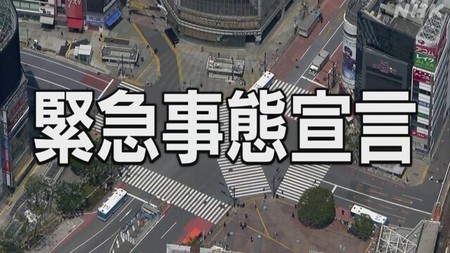
[ad_1]
 The prefectural governments of Chiba, Saitama, and Kanagawa all revealed plans to ask the Japanese national government to extend the current state of emergency in Tokyo to their prefectures, in light of record high daily case counts of the new coronavirus disease (COVID-19). All three prefectures are neighbors of Tokyo.
The prefectural governments of Chiba, Saitama, and Kanagawa all revealed plans to ask the Japanese national government to extend the current state of emergency in Tokyo to their prefectures, in light of record high daily case counts of the new coronavirus disease (COVID-19). All three prefectures are neighbors of Tokyo.
Saitama recorded a record high of 593 new cases on Tuesday. Chiba recorded its record high of 509 new cases on Monday, and 405 new cases on Tuesday. Kanagawa recorded 758 new cases on Tuesday. Tokyo itself set a record high of 2,848 new cases on Tuesday, eclipsing the previous 2,520 on January 7.
Tokyo’s current fourth state of emergency is slated to last from July 12 to August 22.
The Tokyo Olympics held its opening ceremony on Friday, although some sports began their competitions last Wednesday, and some competitions are in prefectures outside Tokyo. Spectators are formally barred from Olympic events in all but three prefectures, but spectators still massed along the outdoor routes of some sports such as cycling and the triathlon.
Chiba, Saitama, and Kanagawa are currently only implementing “targeted preventive measures.” If a state of emergency (similar to Tokyo’s current one) is declared in these prefectures, the government would request events to limit attendance to 50% of capacity or 5,000 people, whichever is less, and to end by 9:00 p.m. The government would also request large facilities such as department stores and arcades to close by 8:00 p.m. and movie theaters to close by 9:00 p.m. — but not close completely as they did in some of the previous states of emergency. The government would offer payments in advance to dining and drinking establishments if they close by 8:00 p.m. and stop serving alcohol. (Previously, the payments came after an application process.)
Okinawa is currently under a state of emergency that will also last until August 22, yet still reported 354 new cases on Tuesday, a new record high for the prefecture. Osaka is currently implementing targeted preventive measures, and recorded 741 new cases on Tuesday. Fukuoka ended its state of emergency on July 11, but reported 236 new cases on Tuesday.
Prime Minister Yoshihide Suga has so far been reluctant to end the ongoing Tokyo Olympics despite the majority of Japanese citizens polled wanting them to cancel, delay, or modify the games. The games were already delayed from last year and rescheduled to July 23-August 8 this year. The event itself had 16 new COVID-19 cases directly related to the games (such as among athletes, staff, and media) on Wednesday for a new total of 169 since July 1. However, Wednesday’s new cases reportedly included no athletes from overseas.
Source: The Asahi Shimbun, NHK World (link 2)
[ad_2]





